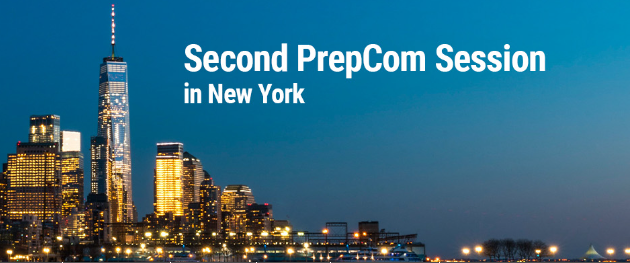UNU-WIDER at the Academic Day of the Financing for Development’s Second Preparatory Committee Session

Despite a large amount of effort to improve revenue collection in low- and middle-income countries (LMICs), high-income countries still collect, on average, more than double the share of total revenues than low-income countries. This panel will examine the role of institutions in shaping fiscal systems in LMICs, aiming to deepen our understanding of how successful fiscal systems develop, why fiscal reforms succeed or fail, under what conditions taxation and governance dividends arise, and the key institutional challenges to closing the gap in domestic revenue mobilization between higher- and lower-income countries.
The research presented at this panel builds on a body of evidence produced under UNU-WIDER’s Domestic Revenue Mobilization Programme from 2019 to the present, with a focus on taxation, institutions, and governance.
Programme
Date: 2 December 2024
Moderator: Marta Roig, Chief, Emerging Issues and Trends Section, UN DESA
Introductory Remarks by Kunal Sen, Director, UNU-WIDER
Speakers:
• Santiago Tobón | Professor of Economics, EAFIT University, Colombia
• Marina Nistotskaya | Professor of Political Science, University of Gothenburg, Sweden
• Kunal Sen | Director, UNU-WIDER, Finland
• Amir Lebdioui | Associate Professor, Political Economy of Development, Oxford University, UK
The following questions will be explored during the panel discussion:
- Taxation and the social contract: What are citizens and elites’ preferences for direct and indirect taxation? How do elites respond to changes in taxation? When does trust in state institutions increase? How can countries emerging from violent conflict strengthen the social contract between the new state and citizens and rebuild social trust and cohesion in ways that ensure the sustainability of peace and avoid the renewal of conflicts?
- Taxation and institutions: What is the role of complementary institutions such as property rights in increasing tax revenue, especially in sub-Saharan Africa? How can governments and development partners foster the creation of stronger governance institutions that enable the formation of taxation states in sub-Saharan Africa?
- Taxation and long-term financing in resource rich economies: What type of institutions may facilitate taxation in resource-abundant countries? How can Sovereign Wealth Funds (SWFs) be a powerful vehicle for governments to direct revenues from natural resources such as oil and gas towards development? How can SWFs promote the climate-resilient transformation of Africa’s economies?
 Join the network
Join the network

